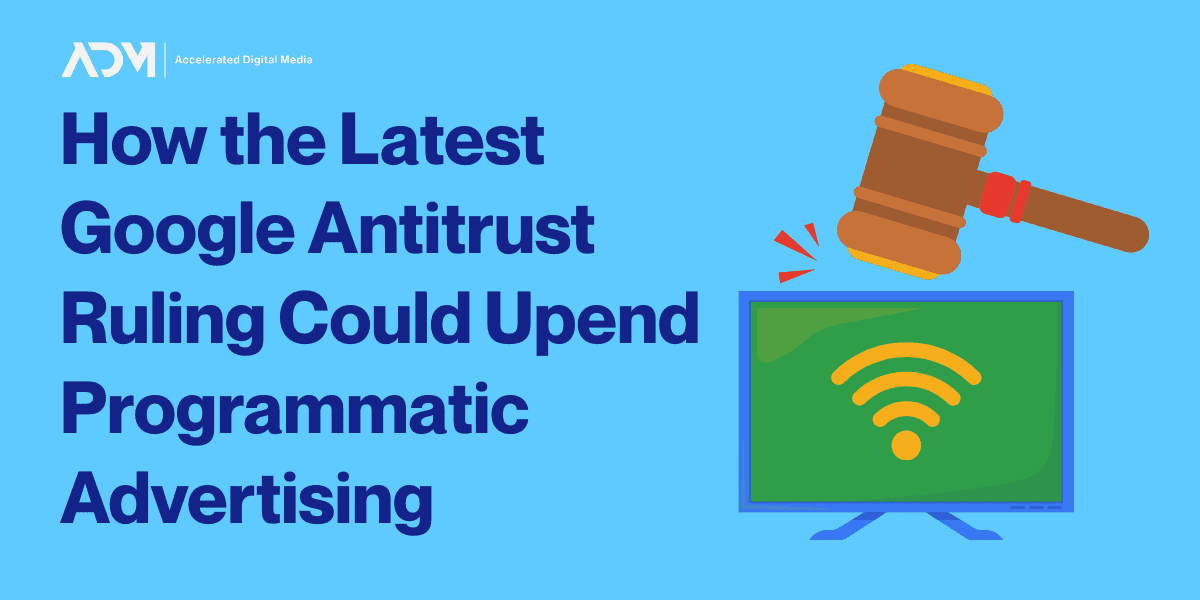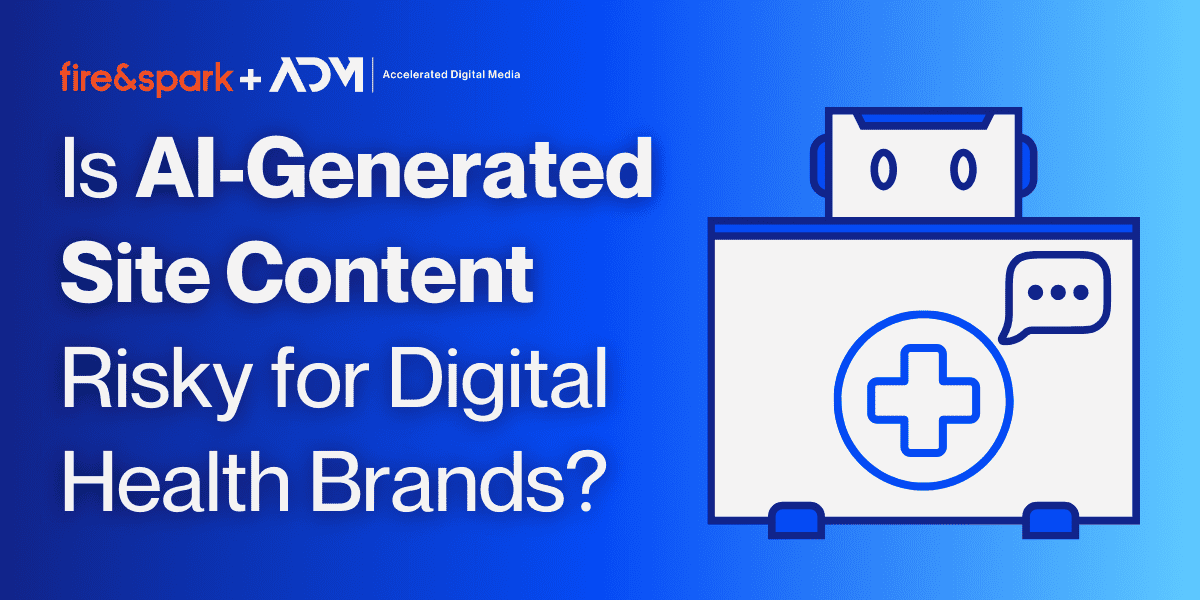Healthcare is unlike any other industry, with its own distinct and nuanced marketing playbook. Digital health marketing programs must be crafted with care, knowledge, and experience. That means that choosing the right marketing agency can be a make-or-break decision for digital health brands and startups. Their partner agency must follow all platform-level and legal guidelines while keeping multiple marketing channels working together towards the brand’s goals.
You don’t want to sink time and money into a generalist agency that lacks the nuance needed to navigate healthcare. That can lead to middling results—and can cost you more money in the long run. But, how do you determine which is the right agency for your brand?
Three Questions When Evaluating a Digital Health Marketing Agency
An agency partnership is a major commitment that demands research and evaluation. You’ll need to consider the agency’s track record, experience, and overall approach to digital health marketing. You must also assess their strengths and weaknesses to determine if they can build a marketing program that will ultimately achieve your goals. Throughout the evaluation process, there are three main questions to keep in mind:
- Who’s in the room?
- Can they prove it?
- What are you paying for?
1. Who Is In the Room?
When considering which digital agency to partner with, remember that the sales process is not necessarily a reflection of the team you will be working with once the partnership begins.
Marketing agencies commonly use a senior team of salespeople, often including founders or executive personnel, to interface with prospective clients during the proposal process. Regardless of how well you gel with the sales team, ultimately it’s essential to ensure you share the same chemistry with the individuals who will be working daily in your accounts. Request that the individuals who would comprise your account team be included in the sales process to see how you like and trust the people who will be directly spending your ad dollars.
When considering which health-focused digital marketing agency to partner with, choose a firm that continually invests in their client teams, rather than just their business development resources. The easiest place to see if an agency is doing so is to confirm that the client team assigned to your account is involved in the pitch and proposal process from the get-go.
ADM’s Approach: In the early days of ADM, the pitch and proposal process for prospective clients was always supported by the account team directly working with that client. Initially, this was a function of headcount—we didn’t have a dedicated sales team. But even as we grew and could build out our sales, we realized that removing the account team from the pitch and proposal process would impact the quality of service our clients counted on.
By studying competitors’ org charts and speaking to clients who came to ADM after other failed agency experiences, we also realized that many digital marketing agencies invest in their sales personnel more aggressively than their client team personnel. We found that this often results in misaligned expectations, and clients are left feeling duped and disappointed. That’s why, despite our growth, our pitch process still typically involves the marketing experts who will be working hands-on in the account.
2. Can They Prove It?
It’s easy for an agency to say they are capable of executing specific services; it’s more valuable if an agency can prove it across all their service lines.
Agencies take varying approaches as they grow: Some primarily offer the same services they started with while continuing to bring on more clients, others will deepen their capabilities and to do more for existing clients. Still others will try to expand services before they’ve fine-tuned their existing offerings which can leave them striving to be a jack-of-all-trades but turning out a master of none.
When determining if you believe an agency’s claims of expertise across every service offering, digital health brands should take a “trust but verify” approach. Speak to references, read case studies, and seek testimonials that illuminate the specific experience an agency claims to have. And don’t put too much stock into any cost-per metrics agencies may promise. There is too much variance among brands, markets, and strategies: You can forecast, but you can’t guarantee.
This diligence also applies to vetting an agency’s experience in the digital health field. Anyone can work with one wellness company and claim experience in the space—but digital health brands are wise to vet prospective agencies’ client history to see if they have any precedent for working with a company like their own.
ADM’s Approach: Agencies who have recently expanded their service scope may offer their new services at a discounted price.
Whenever ADM begins working on a new service offering, we do as much preparation and research as possible. Once we are confident enough to roll out a new service, we present clients with the value the new service brings. We are transparent about the experience we do or don’t have, and what we expect to learn by partnering with the client on the specific initiative. If a client is working with us on something we don’t have as much experience with, we will offer a reduced fee for the services. This honesty with clients generates valuable experience for the agency and credibility for future opportunities.
3. What Are You Paying For?
Agencies should be capable of detailing where they spend their time and what specific deliverables they are providing to their clients. If the agency has a cost + pricing model, where an agency charges a percentage markup based on the cost of the work provided (most agencies do this), this understanding should reflect in a known number of hours that the agency will invest in the partnership. Even if an agency has a value-based pricing model, they should at least provide estimates for the amount of time they dedicate to specific deliverables.
Take your time and investigate any agency’s fee structure thoroughly. Some agencies claim to offer “cheap” rates, but in most cases, you get what you pay for. An experienced agency is always worth the extra investment. Due to their expertise, these agencies charge more for their digital marketing services than those just trying to break into the marketplace.
Find out how the company reports not just its results, but the deliverables it will complete on your behalf. A transparent agency will always willingly keep a client informed of what changes it has made or tests it has performed within their account.
ADM’s Approach: Any agency offering comprehensive or custom services will understand there can be a significant fluctuation in the number of hours spent on a specific client. At ADM, we provide a premium service to our clients, so when specific issues need troubleshooting, it’s all-hands-on-deck.
The Bottom Line
A lot goes into choosing the right digital marketing agency for your digital health brand. And, as partnering with an agency represents a significant investment in both the upfront costs and potential ROI, it’s certainly worth the effort to find the best-fit agency for your digital health growth goals.
Remember, an agency relationship should be an even partnership built on mutual trust and confidence. Asking yourself these three questions throughout each stage of your agency search will help you filter through the noise and identify the fundamental building blocks of a great agency.




